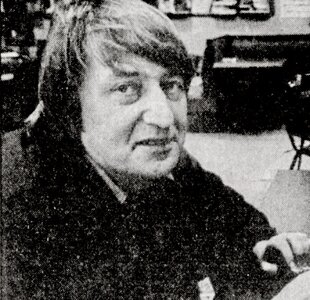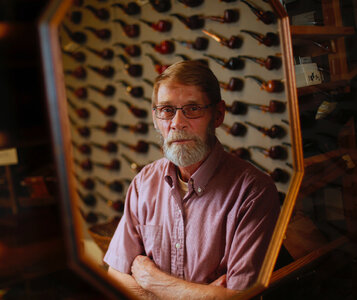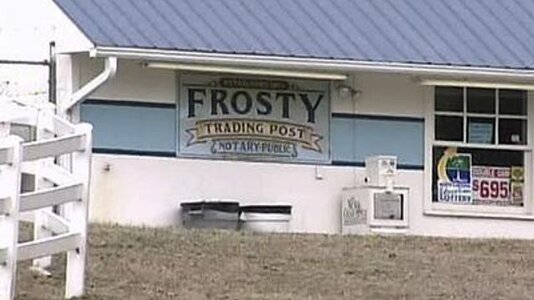donbosco
Inconceivable Member
- Messages
- 3,550
Pretty much frequented nearly everywhere.Did he frequent Bullwinkle's?
Follow along with the video below to see how to install our site as a web app on your home screen.
Note: This feature may not be available in some browsers.
Pretty much frequented nearly everywhere.Did he frequent Bullwinkle's?

I know Joel pretty well. He and his girlfriend used to come in the Cave when it first opened. After they broke up, she ended up marrying a good friend of mine. They are actually the people my wife and I lived with when I was in Rocky Mount when I was undergoing my cancer treatment. My wife, them and Joel and his wife went down to their house in Oak Island together about 3-4 years ago for New Years. Were invited down the last couple of years but my wife can't do the stairs any more.
Come to think off it, that week at the beach, he was talking about Chapel Hill history and I brought you up. I don't know if he remembers but I thought at the time that the two of you should talk.
Entirely likely.I need to interview him. I believe the place where I saw him was the anniversary of The Dead Mule.
Entirely likely.
I see him at The Mule and used to see him most Saturday mornings at Neal’s Deli (he was dropping off his sports publication) before Covid.
Surely some of y'all know or knew Joel Bulkley from his being the day bartender at He's Not Here, or being seemingly all over town peddling the Community Sports News or the North Carolina Anvil. He is excessively mild-mannered but there is so much more to him. This photo was taken 30 years ago but I saw him a couple of months ago and he's looks much the same.
An interview done in 2014 with Joe Bulkley. https://dcr.lib.unc.edu/indexablecontent/679ad434-a445-4745-a657-2216b7075c16
Abstract:
"Joel Bulkley was born in Connecticut in 1944. He moved to Chapel Hill in theearly 1960s as a student at the University of North Carolina, Chapel Hill, and wrote for the Daily Tar Heel, covering the civil rights demonstrations in Chapel Hill. In 1967, hehelped Robert (Bob) Brown start a new semi-weekly newspaper, the North Carolina Anvil, and served as co-editor until the Anvil stopped running in 1983. Bulkley still lives in Chapel Hill and now publishes Community Sports News.With more than fifty years of reporting on news in Chapel Hill and Durham, Bulkley’s interview is full of insights into the tone and tenor of local journalism andpolitics in Orange and Durham Counties. He characterizes the civil rights news coverage in the Durham Herald and the Raleigh News and Observer as “pathetic” in the 1960s, explaining that reporters rarely went to the demonstrations; instead, they gathered information on attendance and impact from the police officers or the business owners. Bulkley was so well known as the local reporter who attended all the demonstrations that when police saw his yellow convertible, they followed him. He interviewed delivery men at picketed restaurant, gauging the true impact of the boycotts on business by the reduction in supply orders. Asked whether his attendance at these demonstrations was asa participant or witness, Bulkley replied, “Some of both.” He commented on political changes from the early 1960s to the late 1970s, noting that power in Orange County shifted from the conservative, rural base in Hillsborough to the more liberal, urban base in Chapel Hill, and reflected on the role of local journalism in this shift.In 1967, Bulkley joined Bob Brown as co-editor of the Anvil, a semi-weekly publication on local arts and politics, with Brown’s stated goal to “raise hell in the public interest.” Throughout the interview, Bulkley reflects on the Anvil’s accomplishments and struggles and relationship to local activism and politics, explaining that “we thought the paper could be an instrument of change. He discusses Anvil writer Leon Rooke’sinterview with basketball player Charlie Scott, the first black scholarship athlete at UNCChapel Hill, and how Anvil reporters had access to black leaders in Durham, such asHoward Fuller, because “they didn’t want to talk to the Durham Herald, and the Durham Herald didn’t want to talk to them.” Bulkley had a reputation for asking “tough questions” of political leaders, and sometimes “the muckety-mucks” of UNC and Duke tried to dodge him, as with the 1969 Allen Building takeover on Duke’s campus. Bulkley explains that he saw the Anvil as “a means to educate, to do something.” He also reflects on the struggle to finance the paper through the printing press that Brown ran, the long days and often nights that he worked to get issues out, and on bartending for thirty years at He’s Not Here to help pay the bills. Bulkley was truly an “eyewitness” to change in central North Carolina. The issues, he reflects, “got harder” from the 1960s to the 1970s, “harder to figure out, harder to deal with, harder to mobilize around.” He offers anecdotes to explain this, comparing his reporting on integrating a restaurant to reporting on employment, equal pay, and equal opportunity (“tougher nuts to crack”). When asked how he characterized his role as a local journalist, he replied, “Practical politics-slash-work […] a lot of work.”
&&&&&&&&&&&&&&&&&&&&&&&&&&&&
About coverage of the Civil Rights Movement by Triangle newspapers:
"JF: What did you think of the coverage by the other newspapers, like the DurhamHerald or the N&O, the Raleigh News and Observer?
JB: It was pathetic. You know, like they would, if there was a demonstrationsomewhere, they might go. They might not. Or they might just call up the police chiefand say, “Well, what happened today, Chief?” And he’s say, “Well, so many gotarrested,” and whatever. And that would be the story. You know, because, again, it’sweekends. They probably don’t want to work weekends anymore than anybody else does.And there was a, you know, occasional TV report, but not much."
&&&&&&&&&&&&&&&&&&&&&&&&&&&&&&
About an interview with Charlie Scott that the North Carolina Anvil managed to get very soon after Scott began playing varsity at Carolina.
"JF: I would say, looking over some of the issues, and I was looking through BobBrown’s archive, you covered so many different kinds of issues and blended arts and entertainment with politics and advocacy.
JB: Yeah, and every now and then, we lucked into a really interesting story. Leon Rooke did a story with the first real interview with Charlie Scott, Carolina’s first black basketball player, about what was it like to be booed at his first two home games inChapel Hill. And Dean Smith’s people, first of all, they didn’t want—they wanted to control the interview and be present and all that. But Leon wasn’t a newspaper writer. He was novelist. He had written books and short stories. And somehow he ran into Charlie somewhere, and they sat down and talked, from which came this really nice story. [Sound of door closing, and background conversation ends]And, of course, Charlie helped his own cause by, like in game three, I think, he scored the winning basket and never got booed again—here. He got booed everywhere else he went, especially when South Carolina was still in the league. But that would—you know, that’s kind of the way journalism is. You go out to do a story on A, and you end upwith B and C, and they may be better than A. You just luck out."
&&&&&&&&&&&&&&&&&&&&


 waltermagazine.com
waltermagazine.com
Knew Jim H pretty well. Summers I would stop by on my way to He's and sometimes sit outside the "shop" and shoot the shit with him. Maybe start early and enjoy a Confectionary beer as well. Got so he'd have me watch the store while he did a quick bathroom break.
This guy may have ‘served’ a few of us as well - from a tiny little shop on Franklin Street, main block. He forsook us in the mid-80s and went to Raleigh but I’d recognize him still.

Pipes by George is a classic on Hillsborough Street
Visit Pipes by George on Hillsborough Street in downtown Raleigh next to the Green Monkey for authentic pipes, cigars, humidors and more.waltermagazine.com

It seems like it's in some sort of transition again. I've driven by a couple of times in the last three months and have seen a couple of vehicles but it didn't seem open. At various times, they've sold Cane Creek pork, had a community book exchange and, if you knew the right clerk, some decent pot.While tecnically not CH or Carrboro. Anyone living out this way or even passing by should know this place. Dropped a few dollars there in my time.
Old Fashioned Country Store Nestled in Chatham County Countryside
WRAL’s Scott Mason travels to the northwest corner Chatham County to sip some coffee and chat with patrons of Frosty Trading Post.
I've driven by a few times over the past 30 yrs since I lived out there. Always seemed to be some sort of something or another; people trying to make a go with cheap rent. I think I remember the book thing.It seems like it's in some sort of transition again. I've driven by a couple of times in the last three months and have seen a couple of vehicles but it didn't seem open. At various times, they've sold Cane Creek pork, had a community book exchange and, if you knew the right clerk, some decent pot.
While tecnically not CH or Carrboro. Anyone living out this way or even passing by should know this place. Dropped a few dollars there in my time.
Old Fashioned Country Store Nestled in Chatham County Countryside
WRAL’s Scott Mason travels to the northwest corner Chatham County to sip some coffee and chat with patrons of Frosty Trading Post.
A turn on my back way to #DeepChatham as well on one of the many back ways from Chapel Hill to Greensboro.
Intersection of Crawford Dairy and Jones Ferry Roads seems an odd way to go to Greensboro from Chapel Hill/Carrboro…..unless you’re already a long way out Jones Ferry.A turn on my back way to #DeepChatham as well on one of the many back ways from Chapel Hill to Greensboro.
